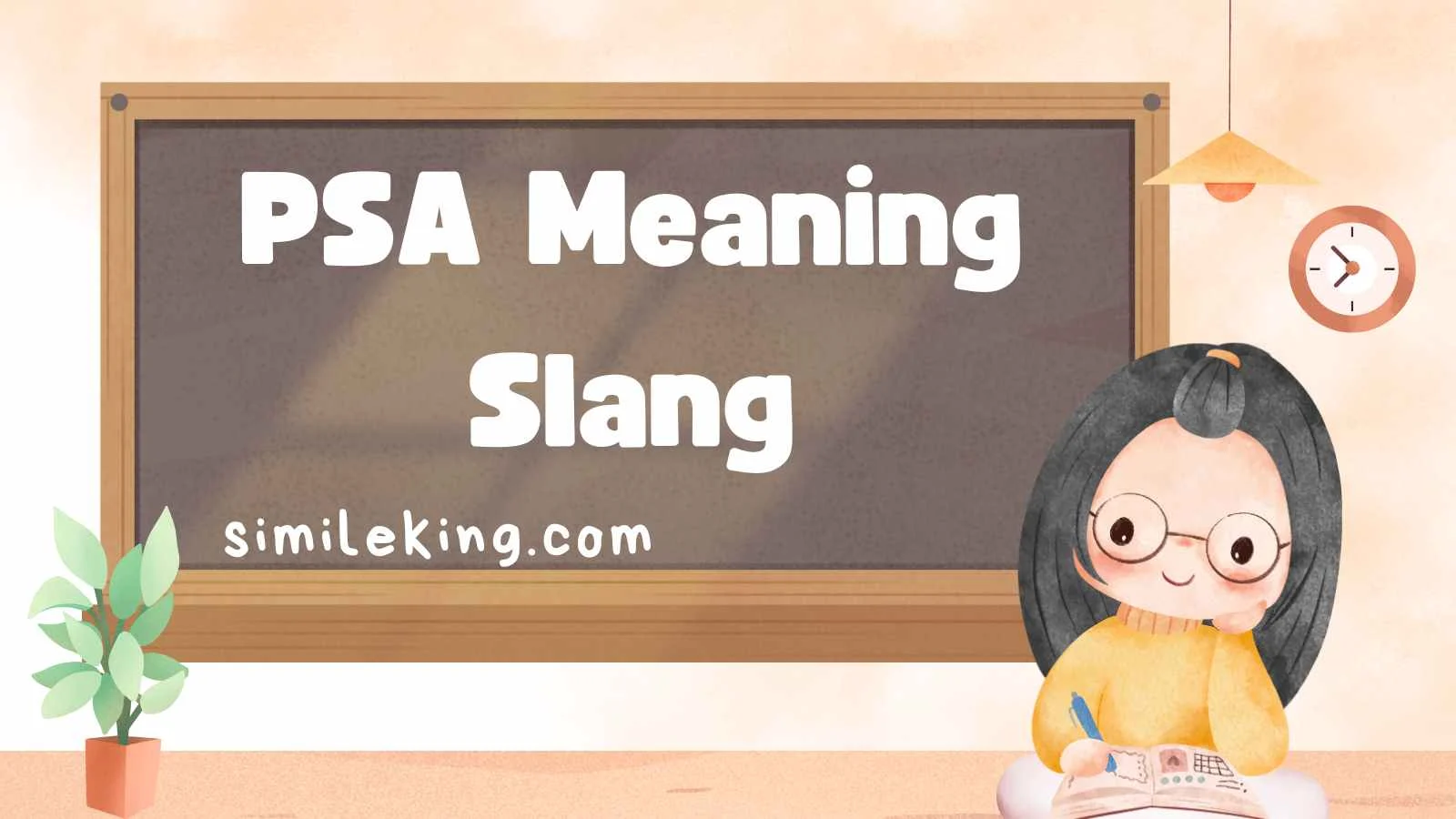In the fast-changing world of online conversations, slang evolves faster than ever. From TikTok trends to Twitter threads, abbreviations like PSA and LMS have become a natural part of digital communication in 2025. But what do they actually mean? And how can you use them effectively in casual chats, professional settings, or even marketing campaigns?
This article goes beyond the simple definitions you find elsewhere. You’ll get a deep dive into PSA and LMS slang, their meanings in different contexts, 10 powerful examples, and tips on choosing the right expression depending on your tone.
Whether you’re a student, professional, content creator, or someone just trying to keep up with modern slang, this guide is designed to give you everything you need.
What Does PSA Mean in Slang?
In slang and online communication, PSA stands for Public Service Announcement. Originally used in government campaigns and public media, the term has been adopted by social media users as a way to share important information, advice, or even jokes.
Core Meaning:
- Formal/Professional: PSA means a serious announcement meant to inform or protect people.
- Casual/Slang: PSA is often used humorously or lightly to share personal advice, random facts, or funny observations.
PSA in 2025 Digital Culture:
In 2025, PSA is no longer limited to serious warnings. Social media users often use it in captions, tweets, or group chats to make statements stand out, like:
- “PSA: Don’t microwave metal.” (serious)
- “PSA: Coffee tastes better when someone else makes it.” (funny)
What Does LMS Mean in Text Slang?
LMS in text slang stands for Like My Status. It became popular during the rise of Facebook and continues to thrive on Instagram, TikTok, and Snapchat in 2025. It’s often used when someone posts content asking others to engage by liking their post.
Core Meaning:
- Casual Use: A fun way to invite likes, shares, or comments.
- Professional Use: Rare, but brands sometimes playfully use it to boost engagement.
LMS in 2025 Digital Culture:
- Teenagers and young adults use LMS to spark interaction on posts or stories.
- Influencers and marketers sometimes repurpose LMS in captions like:
- “New drop coming soon. LMS if you’re excited.”
- “LMS for a discount code.”
PSA vs. LMS: Context Matters
Even though PSA and LMS are both rooted in digital slang, they carry very different tones.
- PSA → Sharing advice, a tip, or information (serious or funny).
- LMS → Inviting interaction, attention, or validation (casual, playful).
Knowing when to use each is crucial, especially if you’re communicating with a professional audience vs. a casual one.
Alternatives to PSA (Slang and Professional)
Sometimes “PSA” might feel too stiff, especially if you want to match a softer or funnier tone. Here are alternatives depending on the situation:
- Heads up – Casual, friendly alert.
- “Heads up: the Wi-Fi will be down tomorrow.”
- FYI (For Your Information) – Professional but flexible.
- “FYI: Meeting starts at 3 PM, not 2 PM.”
- Note this – Works in formal writing.
- “Note this: Submissions close by Friday.”
- Reminder – Neutral, useful for emails or team chats.
- “Reminder: Bring your ID for entry.”
- Quick tip – Helpful in informal settings.
- “Quick tip: Put your phone on silent before class.”
Alternatives to LMS (Slang and Professional)
LMS is fun and casual, but sometimes you’ll want a variation that fits your audience. Here are modern alternatives in 2025:
- Smash that like – Trendy, casual.
- “Smash that like if you’re vibing with this playlist.”
- Hit the heart – More visual, used on Instagram/TikTok.
- “Hit the heart if you agree.”
- Double-tap – Instagram-specific slang.
- “Double-tap if you love sunsets.”
- React below – Works for both casual and semi-formal posts.
- “React below if you’re joining the event.”
- Engage if you care – Playful but direct.
- “Engage if you care about free pizza.”
Nuances of Tone: When to Use PSA vs. LMS
Tone is everything in digital slang.
- Use PSA when you want to grab attention or highlight something. It works in emails, tweets, or casual posts.
- Use LMS when your goal is to boost engagement or invite responses. Best for social media platforms with likes/reactions.
10 Powerful Examples of PSA and LMS in Use
Here are 10 examples showing how PSA and LMS can work in different tones:
- Professional PSA: “PSA: The quarterly report is due by Friday.”
- Funny PSA: “PSA: Eating cake for breakfast is self-care.”
- Casual PSA: “PSA: Don’t trust the campus vending machine. It eats coins.”
- Informative PSA: “PSA: Remember to update your passwords regularly.”
- Social PSA: “PSA: Be kind. Everyone’s fighting battles you don’t see.”
- Classic LMS: “LMS if you want me to post the full story.”
- Playful LMS: “LMS for a surprise DM.”
- Engagement LMS: “LMS if you’d join my study group.”
- Flirty LMS: “LMS if you think I should text back 👀.”
- Brand LMS: “LMS for early access to our product drop.”
Choosing the Best Alternative (Pro Tips)
- For casual conversations → Use PSA humorously or LMS playfully.
- For professional contexts → Replace PSA with “Reminder” or “FYI”; avoid LMS unless used creatively in marketing.
- For content creators → Mix PSA (to deliver value) and LMS (to drive engagement).
- For everyday texting → PSA works well to highlight funny or random thoughts, while LMS sparks quick interaction.
Final Thoughts
In 2025, slang like PSA and LMS continues to evolve, shaping how we connect online. While PSA highlights information (serious or funny), LMS drives interaction and attention. Knowing how to balance these expressions—and when to swap them for alternatives—can make your communication sharper, friendlier, and more effective.
Whether you’re a student, marketer, or just someone active online, using slang wisely isn’t just about being trendy. It’s about expressing yourself with clarity while matching the tone of your audience.





